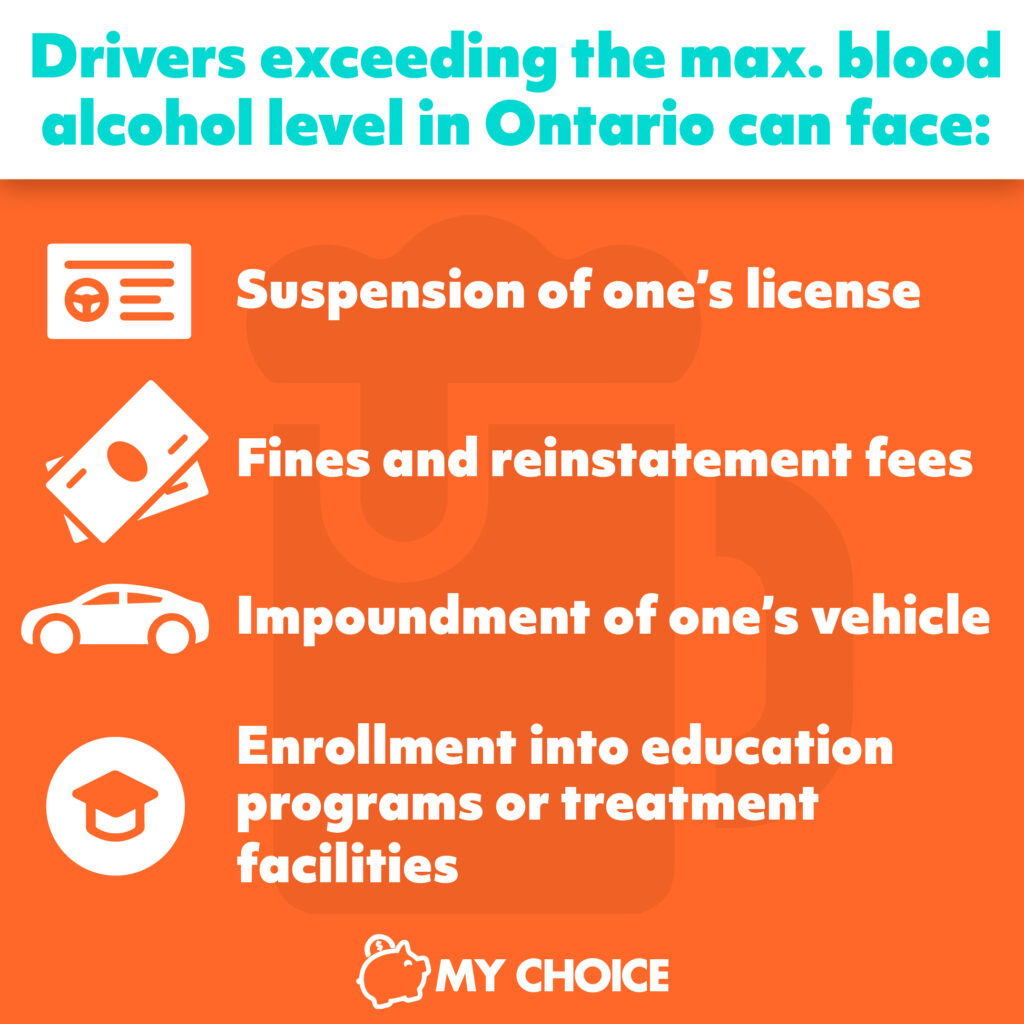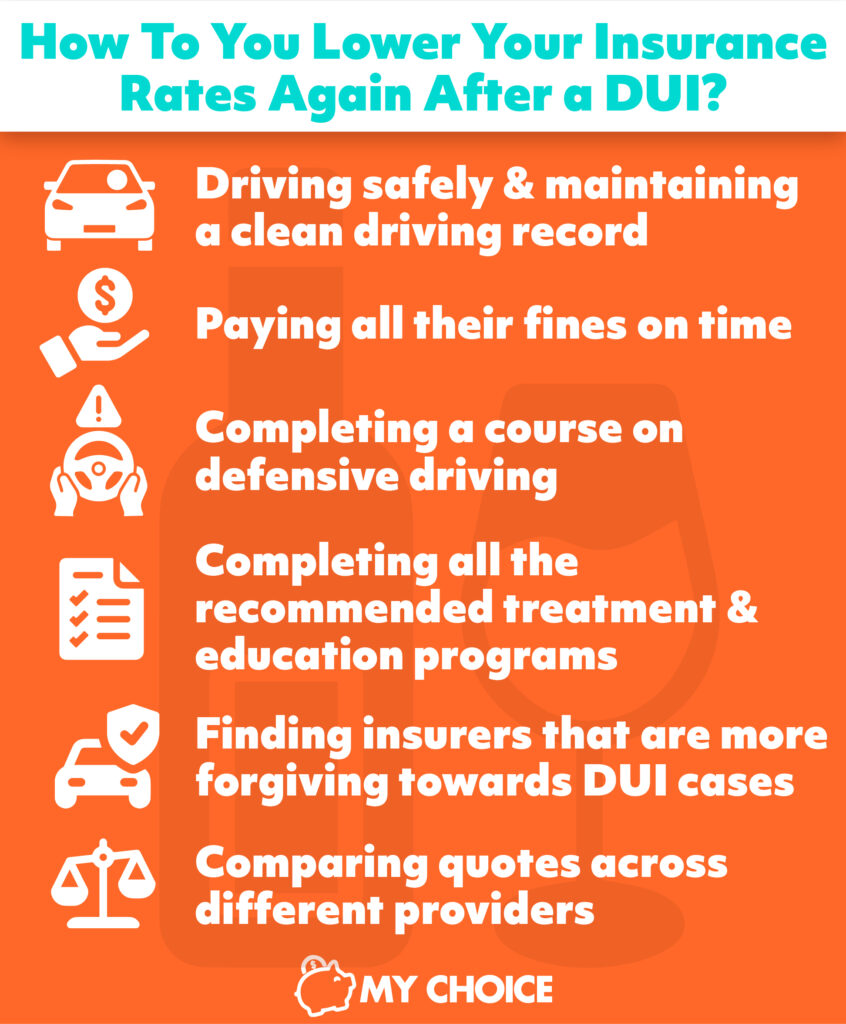
Impaired driving can have serious and long-lasting consequences.
An impaired driving conviction can also affect your ability to get a good auto insurance rate. With a conviction, you could face much higher premiums, be required to get high-risk insurance, and even be denied coverage altogether.
Avoid all the risks involved with impaired driving by learning more about it below. In this blog, we discuss things like the driving alcohol limit in Ontario, the penalties for driving under the influence, and how long a charge can stay on your record.
Impaired Driving in Ontario: An Overview
According to the Ontario Ministry of Transportation, impaired driving means “operating a vehicle while your ability to do so has been compromised by the consumption of alcohol, drugs, or a combination of the two”. Impaired driving laws don’t just cover driving cars, and trucks, but also off-road vehicles, boats, and snowmobiles.
Ontario records some of the lowest numbers of cases of impaired driving in the country, alongside Quebec and Manitoba. However, alcohol-impaired driving remains to be one of the leading causes of road-related fatalities.
As such, Ontario implements strict impaired driving laws. Those who are caught driving while exceeding the maximum blood alcohol level in Ontario can face:
- Suspension of one’s license
- Fines and reinstatement fees
- Impoundment of one’s vehicle
- Enrollment into education programs or treatment facilities
The harshness of the penalty is dependent on the driver’s age and license time, as well as the number of substances found in their system. If you are caught or convicted more than once, you can face harsher penalties or even have your license suspended.

What Is the Legal Blood Alcohol Limit in Ontario?
The legal blood alcohol limit for fully licensed drivers in Ontario is 0.08% or 80 mg of alcohol for every 100 ml of blood. Any higher and you can face criminal charges, license suspension, and fines.
However, take note that drivers caught with a compound blood alcohol concentration (BAC) between 0.05% to 0.08% (called the “warn range”) may also face consequences.
Those whose BAC falls in the warn range and who fail the Standard Field Sobriety test can face anywhere between a three- to 30-day license suspension and a penalty of up to $450, depending on whether they are repeat offenders.
What Is the Ontario BAC Limit for Young and New Drivers?
The BAC limit for young and new drivers in Ontario is anything above zero. Ontario has a zero-tolerance policy for drivers aged 21 or under, as well as drivers of any age who hold a G1, G2, M1, or M2 license. In short, young and novice drivers cannot drive with any alcohol in their systems.
If you’re wondering why the rules are so strict for young drivers, consider this: Statistics Canada found that drivers between the ages of 20 and 24 years old recorded the highest rates of impaired driving at 480 incidents for every 100,000 drivers.
What Is the Ontario BAC Limit for Commercial Drivers?
The BAC limit for commercial drivers in Ontario is also anything above zero. This means that anyone driving a road-building machine or in possession of an A-F driver’s license or Commercial Vehicle Operator’s Registration (CVOR) cannot have any trace of alcohol (or drugs) in the system when operating a commercial vehicle.
Commercial vehicle drivers caught with any drugs or alcohol in their systems could face a three-day immediate roadside license suspension and up to $450 in fines. They will also likely be sent to an education or treatment program. Drivers whose licenses are suspended will also have to shell out money to have them reinstated.
How Many Beers Can You Drink and Drive in Ontario?
The number of beers you can drink without going over the legal limit in Ontario depends on several factors, including how far apart you drink those beers, how much time passes between your last drink and the moment you get in your car, your weight, metabolism, and even your gender.
In general, smaller people have a slower rate of metabolism or the rate at which alcohol is removed from the blood. Women also tend to metabolize alcohol slower than men.
For example, if a 100-pound man and a 100-pound woman consume two beers in an hour, the former could show a BAC of 0.09% while the latter could show a BAC of 0.10%.
What Are the Penalties for Impaired Driving in Ontario?
Here is a list of the penalties that drivers who are caught drinking and driving in Ontario could face:
| First offence</b | Second offence</b | Third offence</b | |
| All drivers in the warn range (BAC between 0.05 to 0.079%) and who fail the field sobriety test |
|
|
|
| All drivers with a BAC of 0.08% or more and who fail/refuse to take an alcohol test |
|
|
|
| Drivers under 21 and/or who have a G1, G2, M1, or M2 license who are caught with any amount of alcohol in their system |
|
|
|
| Commercial vehicle drivers who are caught with any amount of alcohol in their system |
|
|
|
How Long Does Impaired Driving Stay on Your Record?
Impaired driving charges can remain on one’s driving record for up to three years. A conviction can stay on your criminal history for ten years.
Does Impaired Driving Affect Insurance?
Impaired driving can impact your current policy and your ability to get auto insurance in the future. When you’re hit with an impaired driving charge, your insurance provider could either cancel your policy or raise your premium rate significantly.
This is because people who drive under the influence are likely to be repeat offenders. As alcohol and drugs can seriously affect your reaction time and judgment, it raises your risk for careless driving, leading to accidents and injuries to yourself and others.
To learn more about what to do in case of an accident, read our blog on how to report a car accident in Ontario.
When applying for insurance coverage with an impaired driving charge or conviction on your record, you’re likely to be classified as a high-risk driver by insurance providers. This means they’ll charge you much more for insurance than regular drivers. In fact, drivers with impaired driving charges can pay up to five times more on auto insurance premiums than drivers with clean records.
Can You Lower Your Insurance Rates Again After a DUI?
DUI offenders can work towards lowering their premiums even with an impaired driving conviction. Some things they can do to make the transition include:
- Driving safely and maintaining a clean driving record
- Paying all their fines on time
- Completing all the recommended treatment and education programs
- Completing a course on defensive driving
- Finding insurers that are more forgiving towards DUI cases
- Comparing quotes across different providers

The Bottom Line
Driving under the influence of alcohol in Ontario is a serious crime that comes with very real consequences, such as putting you at greater risk for accidents and injuries and increasing your insurance quotes.








